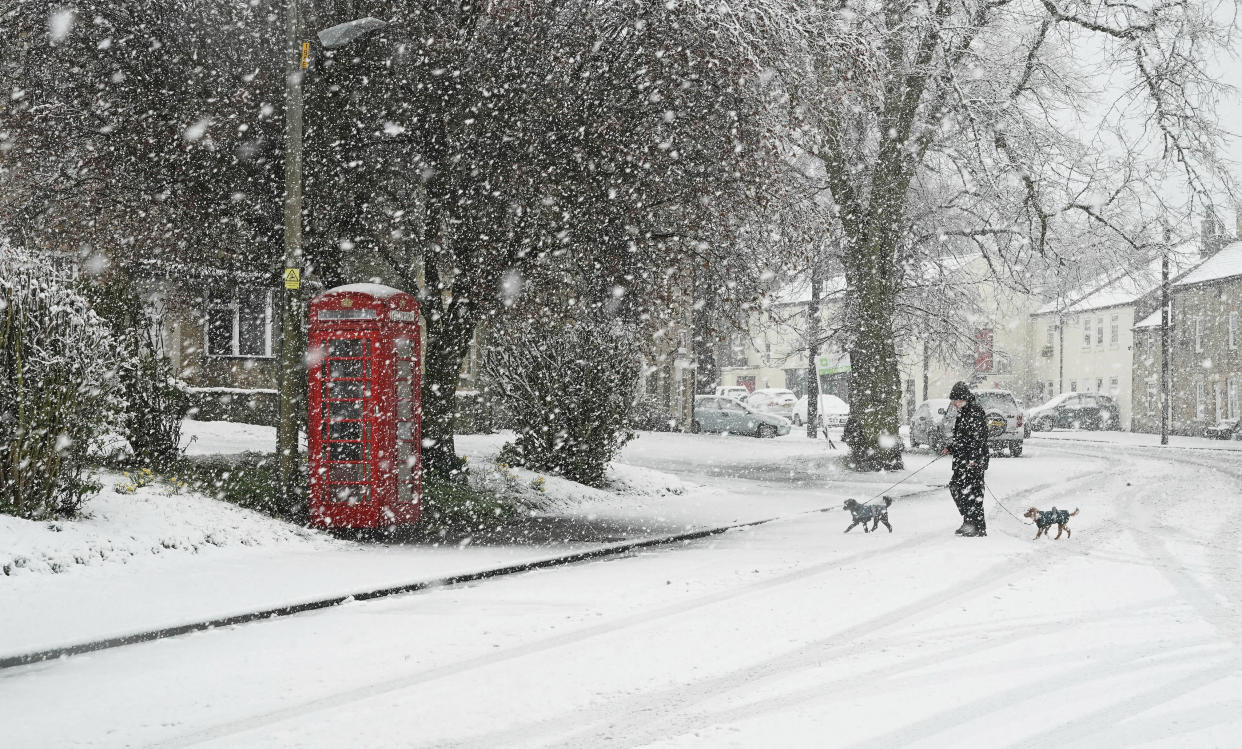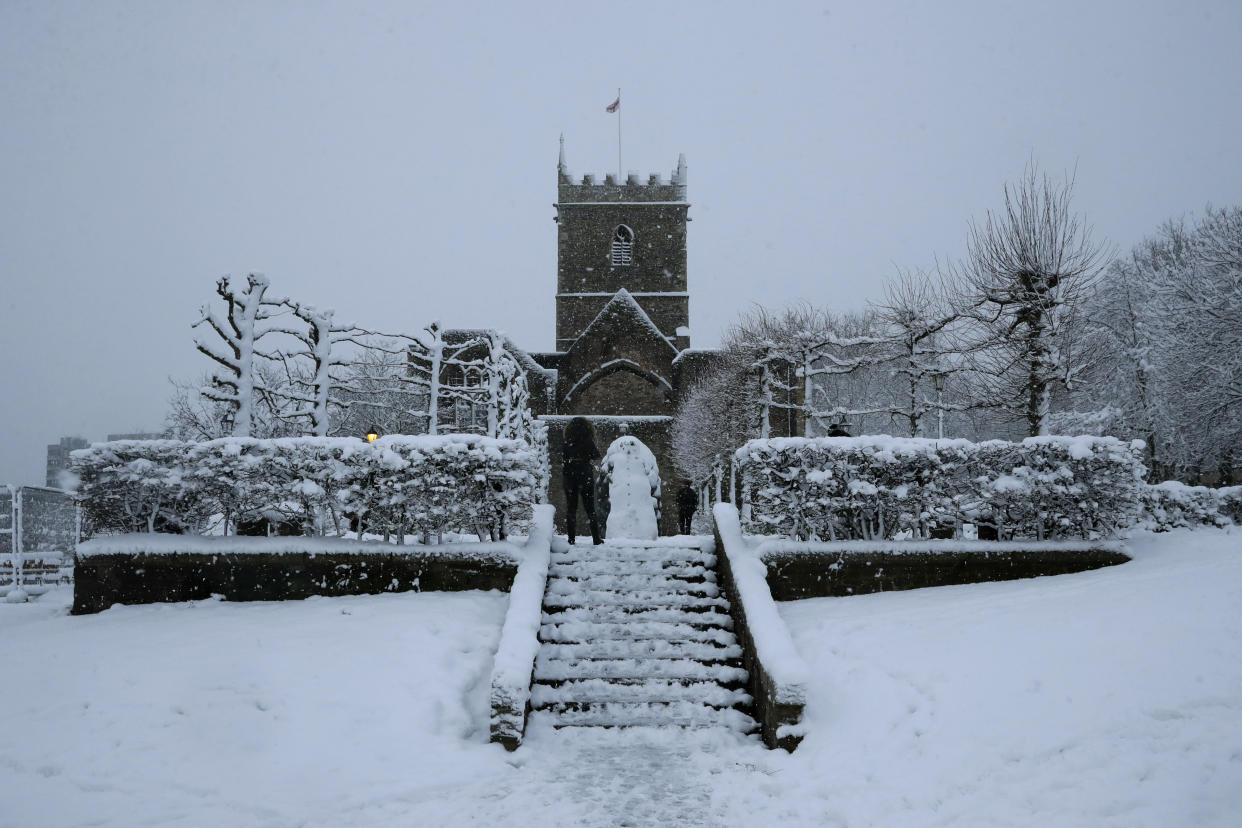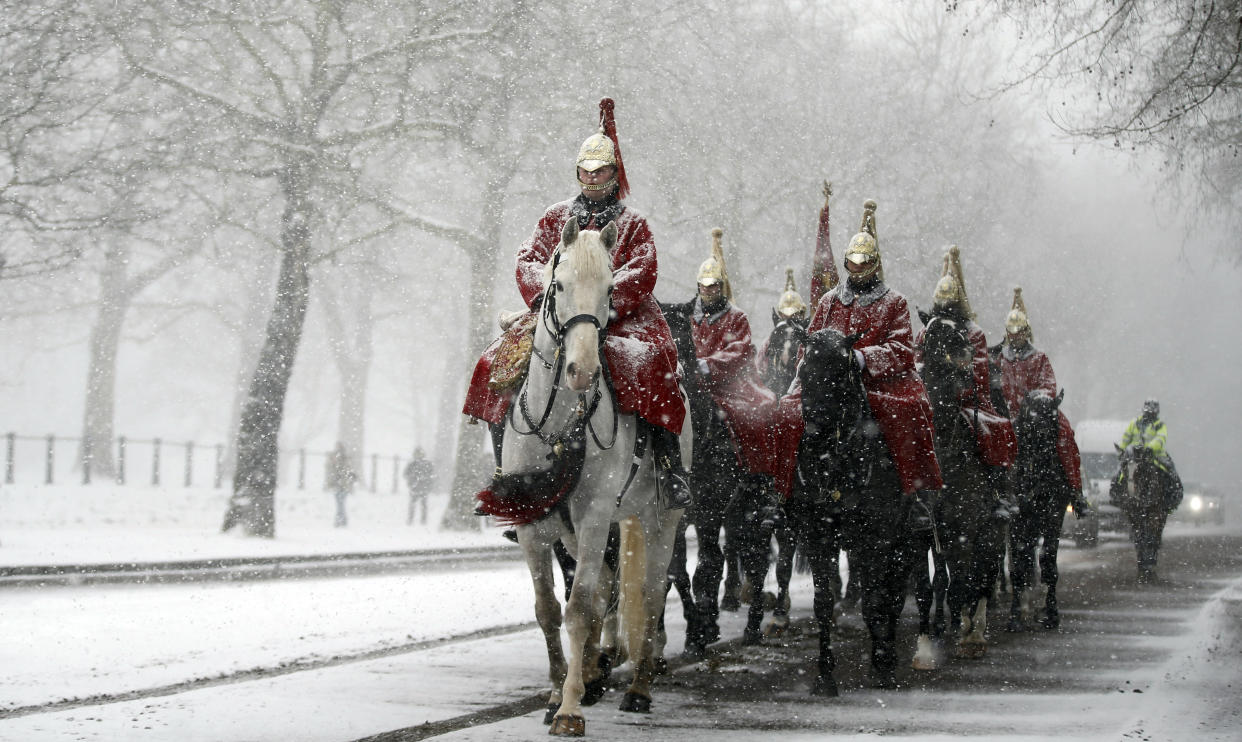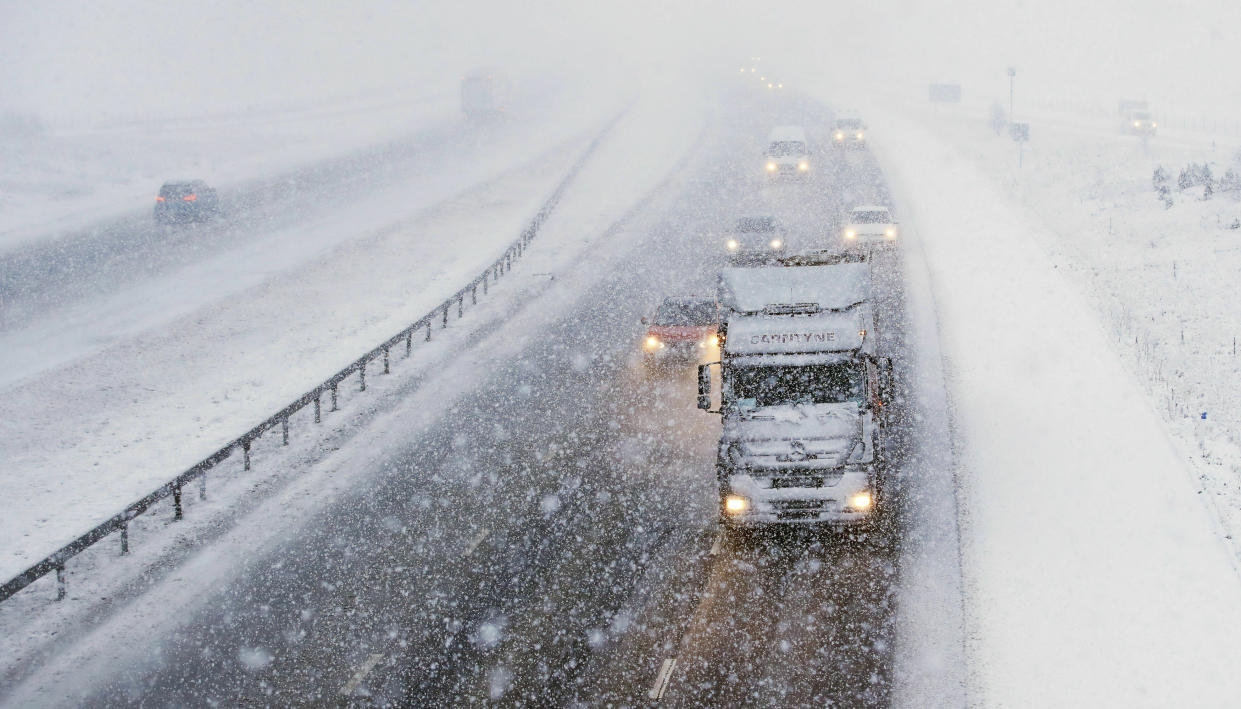Britain braced for 'coldest winter for 30 years'

Britain could be in for a new beast from the east as experts predict this winter will be "the coldest weather in 30 years".
Temperatures could reach as low as -14C with “snow event after snow event” expected to hit parts of the UK from as early as later on this month.
Earlier this month, researchers from University College London forecast an average temperature of just 3.9C for January to February.
They found that a freezing vortex of Arctic air could hit the country after studying current sea temperatures and a weather system over the north Atlantic.

Climate experts believe the bitterly cold spell will rival the freezing winter of 1963, which is said to have been the coldest for 200 years.
In February 2018, Britain was covered with a sheet of snow when the so-called beast from the east hit, blasting freezing cold air from Siberia.
READ MORE FROM YAHOO NEWS
Europe ‘warming faster than climate models projected’, research suggests
Remnants of Hurricane Lorenzo heading to western UK
The experts think that this system will come from the North Pole bringing in a band of low pressure stretching from Greenland to the northwest coast of Ireland.
Exacta Weather forecaster James Madden told the Sun Online: “October is now looking like it will turn out to be colder than average with more of a chance of something wintery setting in through the second half of the month.


“There is a strong chance of widespread frosts and the chance of snowfall which will set the scene for November.
“This will pave the way for what is shaping up to be a colder than average winter with some extreme cold weather events.
“Snow events have been few and far between in recent years, but this winter is looking favourable to bring snow event after snow event as weather systems from the Atlantic clash with cold stagnated air over the UK.”
The UCL study said that if the Arctic air moves into the UK this winter, it is likely to bring icy temperatures and snow that could last weeks, scientists said.
Professor mark Saunders told the Sunday Times that there is a 57 per cent chance that 2020's winter will be colder than in 2018.
This summer saw record temperatures in a series of fierce heatwaves in several countries across Europe.
Earlier this summer, research found the record-breaking July heatwave in central and western Europe would have been up to 3C (5.5F) cooler if the climate was not changing.


